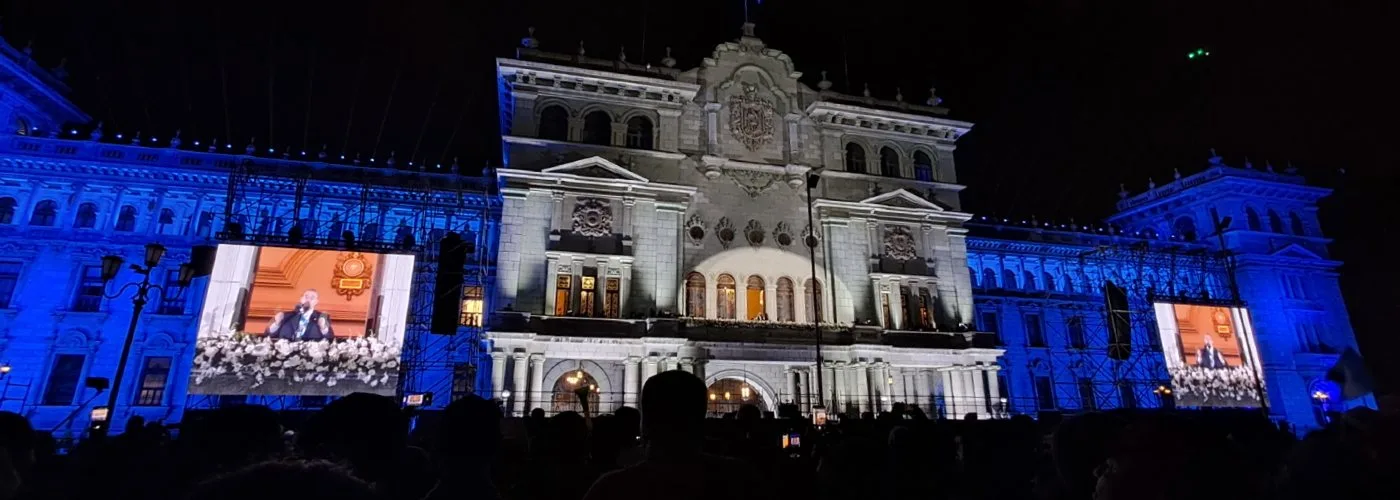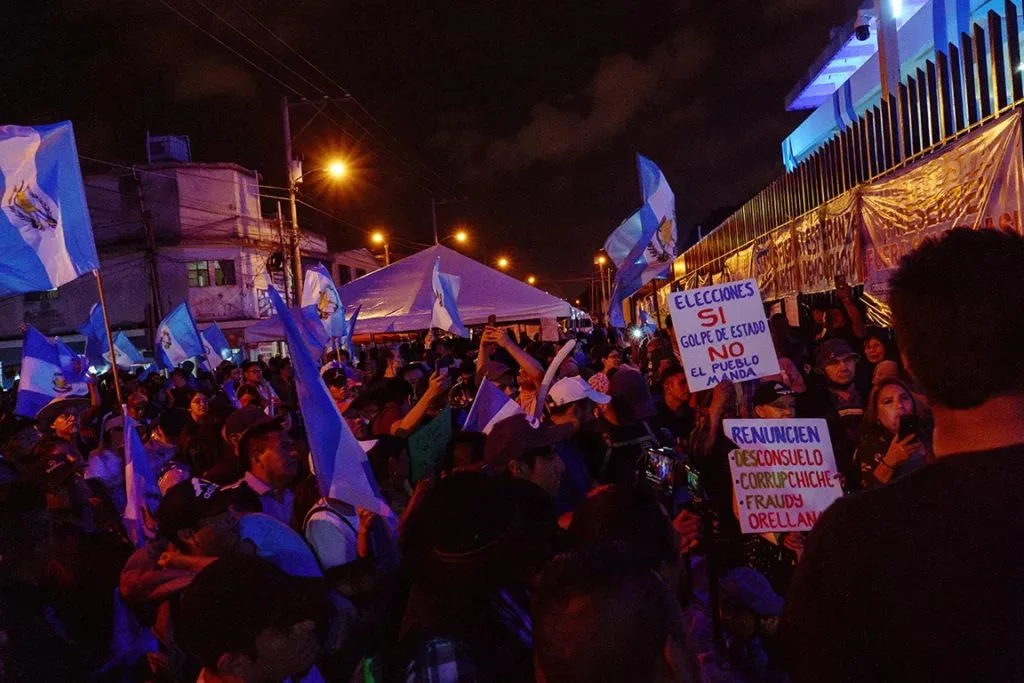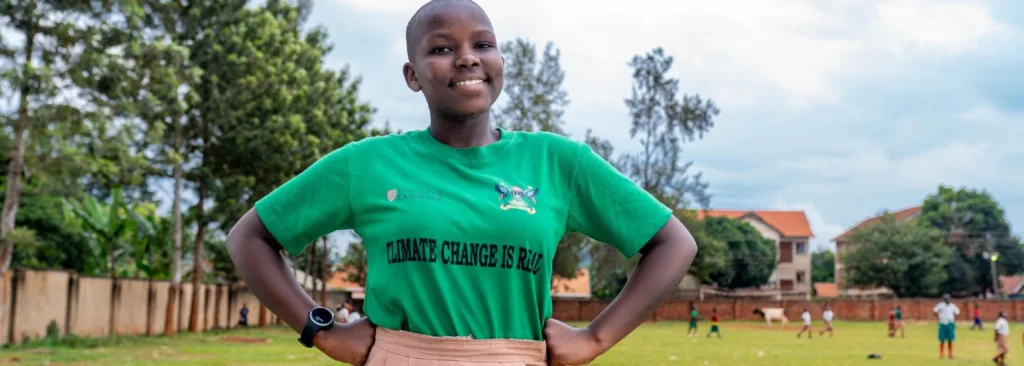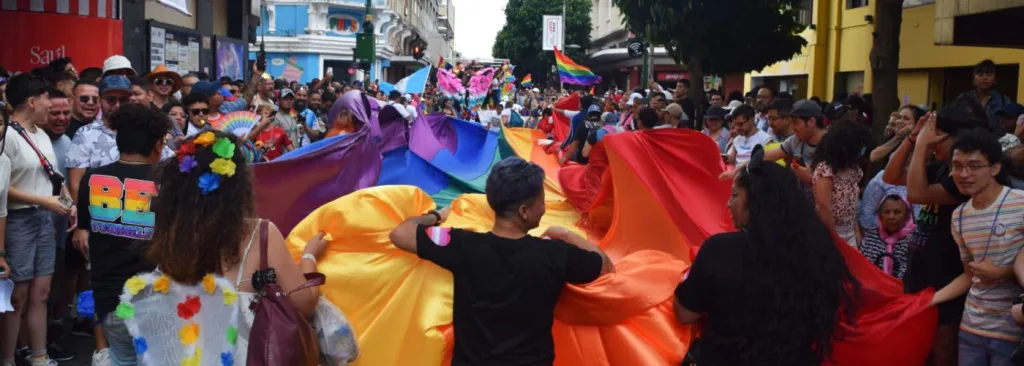By Saira Ortega, Hivos Latin America Program Manager, and Gabriela Melgar, Regional Communication Officer
Bernardo Arévalo took office as Guatemala’s new president in the early hours of Monday, January 15, 2024. This followed months of judicial machinations by his political opponents to block him from office after his vow to clamp down on corruption. This, without a doubt, represents a turning point in a country where economic, political, and social tensions have increased due to deep-seated corruption and impunity.
Obstruction down to the last minute
The inauguration of the new president and his running mate Karin Herrera was scheduled for January 14, but was delayed for nine hours. A section of the right-wing dominated Congress, allied to “the pact of the corrupt,” spent hours debating whether lawmakers with Arevalo’s Semilla (Seed) movement should be installed as regular deputies or as independents.
The many international delegations and other high-level guests invited to the ceremony were left to wait and speculate. Great concern also reigned on the streets about whether the inauguration would take place. However, after widespread messages of support on social media from international delegations and pressure from citizens throughout Guatemala City, Arévalo was sworn in after midnight. He is Guatemala’s most progressive head of state since democracy was re-established in the 1980s.
Resounding setback
Bernardo Arévalo’s rise to power after more than 115 days of legal and political wrangling represented a resounding setback for Guatemala’s conservative political, economic and military cabal which the people call “the pact of the corrupt.”
His election reflected broad support for his proposals to stop corruption and recover a democracy weakened by years of governments allied to mafias and economic elites.
The crucial role of Indigenous leaders
His inaugural address emphasized the triumph of democracy despite judicial persecution and the ongoing political crisis in Guatemala, his government’s plans and viewpoints, and the transcendental role played by Indigenous peoples in his election victory.
After the inauguration, President Arévalo went to the Public Ministry Ito thank Indigenous leaders gathered there for all their support.
As he and Vice President Karin Herrera greeted the citizens waiting for them on Constitution Plaza since 4 AM January 15, fireworks lit up the National Palace in an emotional and celebratory moment for everyone.
Support and joy
The thousands of supporters who gathered to await the ceremony waved flags in a festive atmosphere with music and dancing. Indigenous Mayans had earlier lit incense and danced along to the rhythm of drums, celebrating the pending change in government.
The inauguration was attended by international delegations, heads of state and government, foreign ministers, Secretary General of the Organization of American States (OAS) Luis Almagro, EU foreign policy chief Josep Borrell, Colombian President Gustavo Petro, and Spanish King Felipe VI, amongst others.
In Bernardo Arévalo’s own words, “It is thanks to the young people of Guatemala who did not lose hope that today I can speak to you from this podium. [And thanks] to the families and the four Indigenous peoples from whom I continue to learn and value, aware of the historical debts to be resolved. It is time to embark on a path of dialogue and peace.”
Guatemalans have expressed their democratic will in fair, free and transparent elections, endorsed by the international community through its electoral observation missions. That will must be respected.
Hivos in Guatemala
Hivos works with civil society, think tanks, governments, alternative media, and others to help build more just, inclusive, and sustainable societies. In Guatemala, Hivos has been supporting civil society organizations and activists for more than 30 years.
Currently, we’re working on defending the rights of women and the LGBTIQ+ community, economic justice for women, open justice, and open data. And now, with our partners in Guatemala, we are creating spaces for dialogue with the new government to strengthen policies and programs on citizen oversight and anti-corruption.





